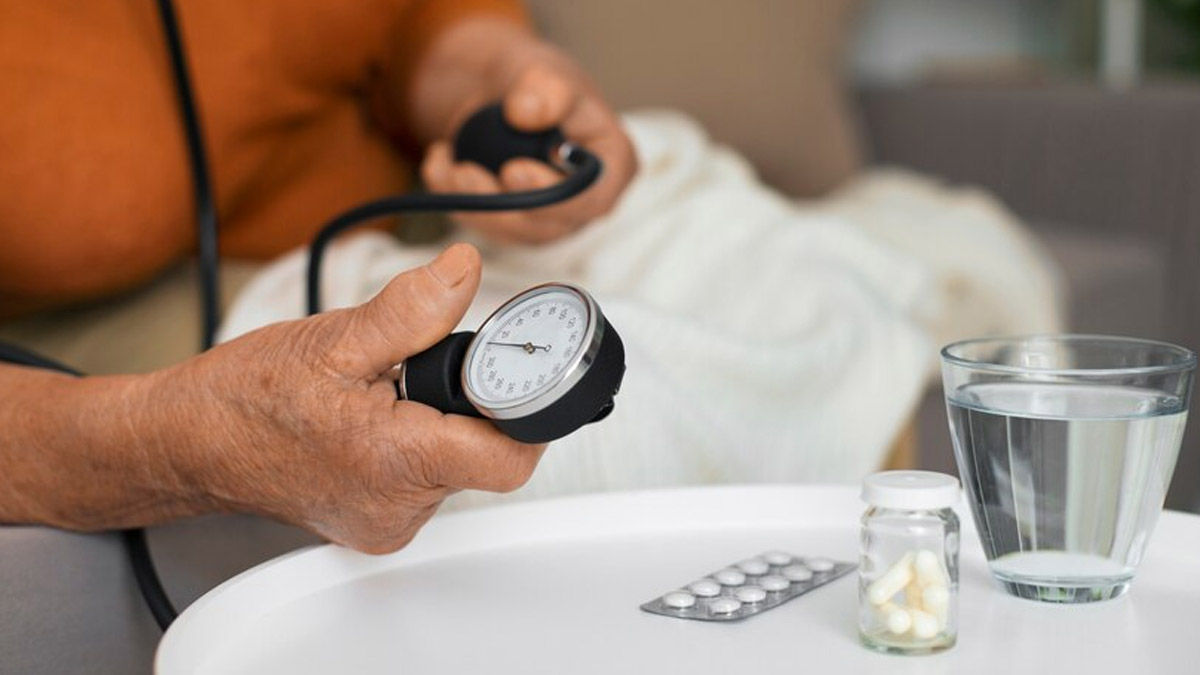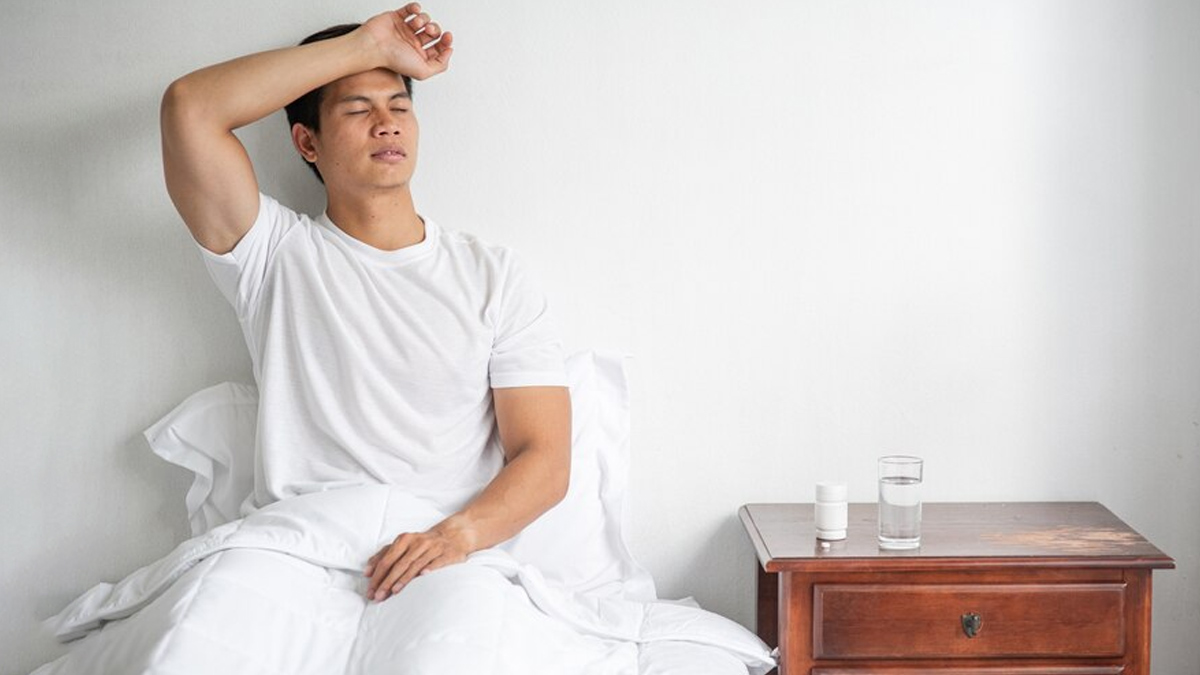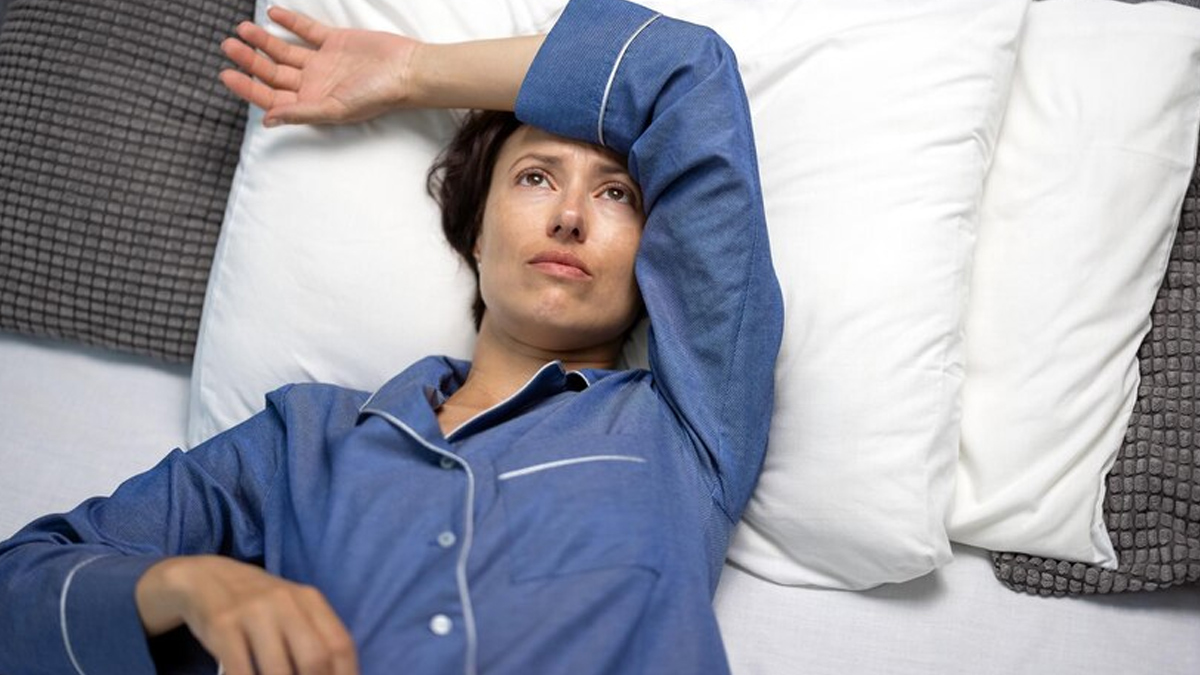
Blood pressure is a critical factor in many serious health conditions, including heart disease, kidney problems, and brain strokes. It’s important to understand how blood pressure behaves throughout the day to manage these risks effectively. Morning blood pressure spikes are particularly concerning because they can damage vital organs over time, leading to chronic diseases if left unchecked. Recognising the early signs of a silent rise in blood pressure is crucial for preventing long-term health issues. We spoke to our expert Dr Lingaraj Nath, Senior Consultant and Director – Cardiology, Manipal Hospital, Bhubaneshwar, who listed six silent warning signs of high blood pressure in the morning.
Table of Content:-

“Normally, blood pressure follows a diurnal cycle, which means it fluctuates in a predictable pattern over 24 hours. Upon waking up in the morning, blood pressure naturally begins to rise. Shortly after, it typically drops by a few millimetres, stabilising as the day progresses. This cycle is part of the body's natural rhythm. However, there are instances when blood pressure in the morning can spike unexpectedly, and this rise can go unnoticed, posing significant health risks,” highlighted Dr Nath.
According to the Journal of Clinical Hypertension (JCH), morning hypertension refers to elevated blood pressure specifically during the morning, independent of blood pressure levels throughout the rest of the day. It is characterised by a morning BP reading of ≥135/85 mm Hg, measured through Ambulatory Blood Pressure Monitoring (ABPM) or at-home monitoring.
Also Read: Managing High Blood Pressure And Blood Sugar: Expert Lists Supplements You Should Avoid
Silent Warning Signs Of High Blood Pressure In The Morning
Here are some key indicators that may suggest a dangerous increase in morning blood pressure:
1. Sweating and Weakness

If you wake up in the morning feeling sweaty and weak, it could be an indication of a silent blood pressure spike. This reaction may be the body's response to stress caused by elevated blood pressure levels, and it should not be ignored.
2. Frequent Nighttime Urination
Getting up frequently during the night to urinate can be a subtle sign that your blood pressure is higher than normal. This symptom may indicate that your kidneys are under strain due to elevated blood pressure.
3. Feeling of Inadequate Sleep

If you wake up feeling as though you haven’t slept well despite spending enough time in bed, it could be a sign that your blood pressure is higher than usual during the night and early morning hours.
Also Read: Anxiety And High Blood Pressure: Expert Explains Their Connection And Management Measures
4. Breathlessness or Fatigue
Experiencing breathlessness or extreme fatigue while performing your morning routine could indicate that your heart is struggling to cope with the increased pressure. This is a warning sign that should prompt immediate attention.
5. Difficulty Concentrating

Trouble focusing on morning tasks might be more than just sleepiness. It could be a sign that your brain isn’t receiving enough oxygen due to high blood pressure, which can impair cognitive function.
6. Early Morning Headaches or Vomiting
A headache or vomiting shortly after waking up can be a direct result of elevated blood pressure. These symptoms are particularly concerning and should be taken seriously.
Understanding and monitoring your blood pressure, especially in the morning, can be a lifesaving measure. By being aware of these symptoms, you can take proactive steps to manage your health and prevent serious complications.
Bottomline
Dr Nath concluded, “If you experience any of these signs in the early morning, it is essential to consult a healthcare provider and have your blood pressure checked. Early detection of rising blood pressure allows for timely interventions through lifestyle, sleep, and dietary changes, which can help restore normal levels and prevent the development of chronic health conditions.”
[Disclaimer: This article contains information provided by an expert and is for informational purposes only. Hence, we advise you to consult your own professional if you are dealing with any health issues to avoid complications.]
Also watch this video
Read Next
World Mosquito Day 2024: How to Stop Symptoms Of Mosquito-Borne Infections From Getting Worse
How we keep this article up to date:
We work with experts and keep a close eye on the latest in health and wellness. Whenever there is a new research or helpful information, we update our articles with accurate and useful advice.
Current Version